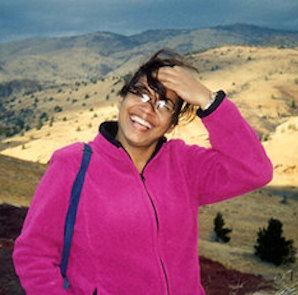Threats against Lottie Cunningham Wren and other human rights defenders
On 17 March 2017, indigenous rights defender Lottie Cunningham Wren received threats against herself, CEDHJUCAN’s staff, and other human rights defenders on Facebook.
 Lottie Cunningham Wren is a lawyer and founder of the Centro por la Justicia y Derechos Humanos de la Costa Atlántica de Nicaragua (Center for Justice and Human Rights of the Atlantic Coast of Nicaragua - CEJUDHCAN). She works with over 100 remote communities to help indigenous peoples exercise their legal rights to protect natural resources.
Lottie Cunningham Wren is a lawyer and founder of the Centro por la Justicia y Derechos Humanos de la Costa Atlántica de Nicaragua (Center for Justice and Human Rights of the Atlantic Coast of Nicaragua - CEJUDHCAN). She works with over 100 remote communities to help indigenous peoples exercise their legal rights to protect natural resources.
Lottie was an expert witness in the Awas Tingni vs. Nicaragua case, before the Inter-American Court of Human Rights. This case resulted in a tremendous land rights victory for indigenous peoples throughout the Americas. Lottie`s goal now is to implement that decision and help communities on the Atlantic Coast of Nicaragua demarcate and title their lands.
Lottie has received threatening letters warning her not to continue her work with the communities and there was a kidnapping attempt against her in May 2015 in one community. Her colleagues have received threatening phonecalls warning them against speaking out like Lottie.
On 17 March 2017, indigenous rights defender Lottie Cunningham Wren received threats against herself, CEJUDHCAN’s staff, and other human rights defenders on Facebook.
Download the Urgent Appeal (PDF)
On 17 March 2017, the human rights defender Lottie Cunningham Wren received threats, through CEJUDHCAN’s Facebook account, against her and other human rights defenders in Nicaragua. The message demanded that they cease their work “against the government and people of Nicaragua” and that they should be “treated as the trash they are”. The threat included images of human rights defenders Lottie Cunningham Wren, Vilma Nuñez de Escorcia and Francisca Ramírez, among others.
Human rights defenders in Nicaragua have been subject to death threats and violent attacks, including killings, that often go unpunished. Not only does the government fail to offer protection, but in many cases governmental officers are involved in the violations themselves. Front Line Defenders has previously raised its concern regarding cases of harassment, threats, intimidation and illegal seizure of property in the cases of Vilma Nuñez de Escorcia and Francisca Ramírez. On 8 March 2017, female Ministers and Vice-Ministers of the Nicaraguan government issued a letter in which they refuted the eligibility of Vilma Nuñez de Escorcia to receive the International Women of Courage Award.
Previously this year, Lottie Cunningham Wren also received threats due to her work with indigenous communities. On 28 February 2017, the human rights defender received threatening messages from an unknown person posted on CEJUDHCAN’s Facebook page. The individual demanded the organization cease its activities, otherwise it would “have war, and war means blood”. On May 2015, the human rights defender suffered a kidnapping attempt and her colleagues received threatening phone calls warning them against speaking out.
The Inter-American Commission on Human Rights (IACHR) has previously, in 2016, issued a precautionary measure in favour of CEJUDHCAN members, due to the violence against them. The Nicaraguan government has repeatedly avoided its responsibility in properly implementing the precautionary measure.
Front Line Defenders is gravely concerned at the most recent threats and acts of intimidation faced by CEJUDHCAN’s staff and other human rights defenders in Nicaragua, as the heightened risk they face seems to be linked to a desire to silence their voices as human rights defenders.
Front Line Defenders urges the authorities in Nicaragua to:
1. Carry out an immediate, thorough and impartial investigation into the threats against CEJUDHCAN’s staff and other human rights defenders in Nicaragua, with a view to publishing the results and bringing those responsible to justice in accordance with international standards;
2. Take all necessary measures, in consultation with the defenders, to guarantee their physical and psychological integrity and security;
3. Immediately implement, at a minimum, the precautionary measure in favour of CEJUDHCAN members issued by the IACHR;
4. Guarantee in all circumstances that all human rights defenders in Nicaragua are able to carry out their legitimate human rights activities without fear of reprisals and free of all restrictions including judicial harassment.
